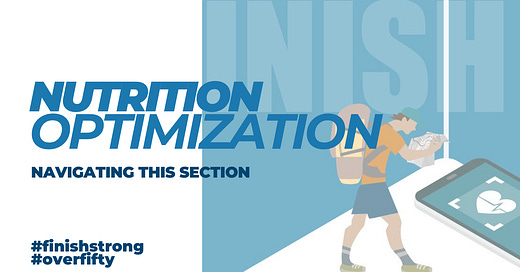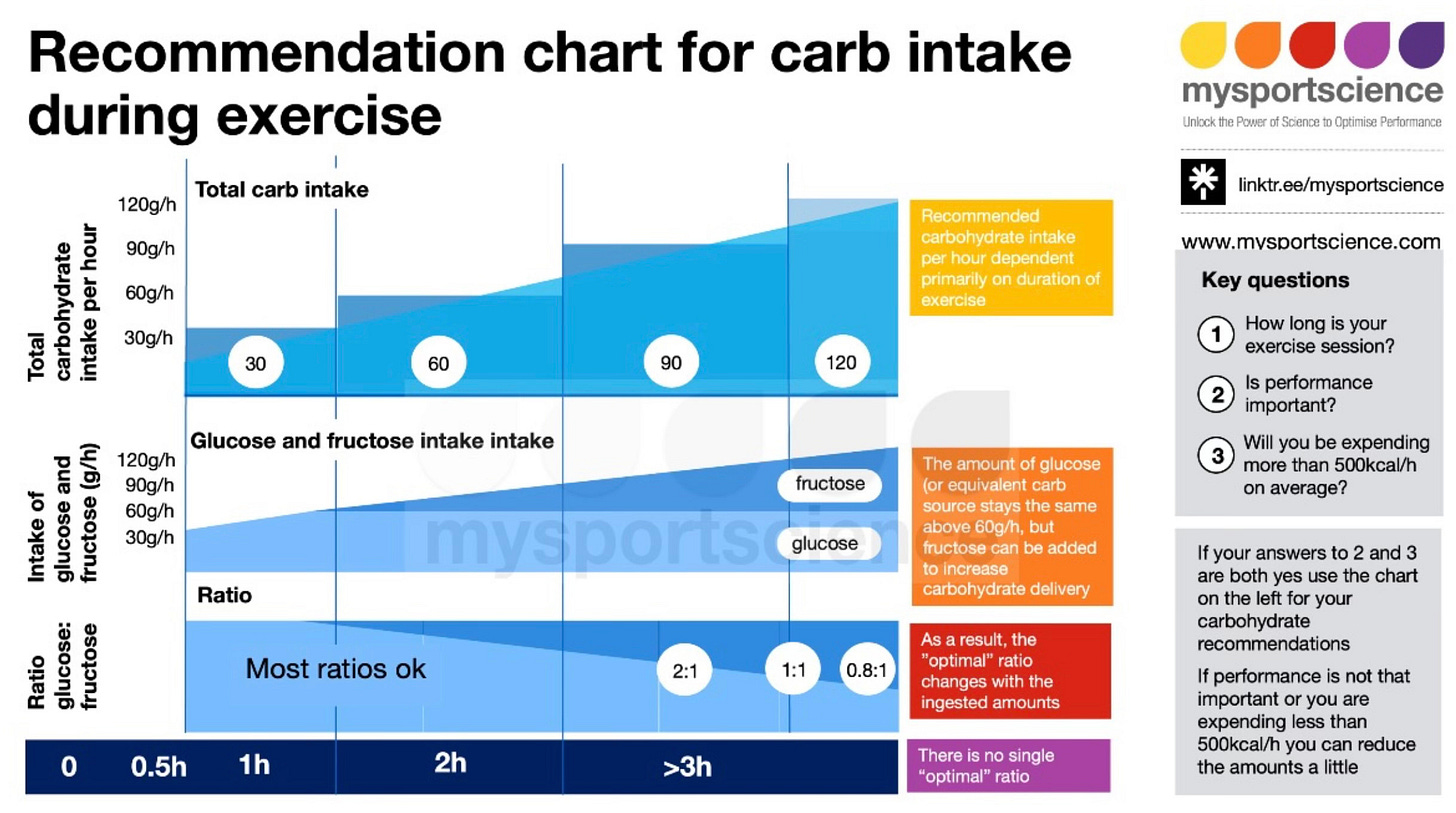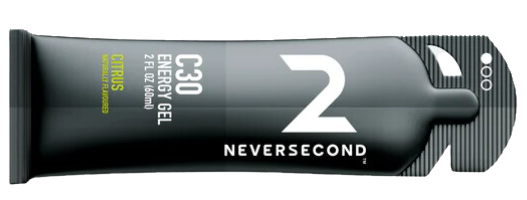#9) PERFORMANCE NUTRITION & HYDRATION
“Nutrition is the invisible training partner that shows up when it counts.”
– Unknown
Performance Nutrition Recommendations
What you eat, how much, and when you eat all influence your fitness, performance, and overall well-being. The resources here are meant to offer practical, evidence-informed strategies to help you build more effective nutrition habits.
You’ll find overviews of key fueling and hydration principles, along with simple tools to support your planning. The goal is to help you make thoughtful adjustments that align with your needs, training, and recovery.
Take your time exploring—these materials are here to support you in developing a sustainable, personalized approach to performance nutrition.
Daily Nutrition
Best Practices for a Healthy Athlete Diet:
Prioritize Whole Foods: Emphasize vegetables, fruits, whole grains, lean proteins, legumes, nuts, and seeds.
Balance Macronutrients: Include a mix of carbs, proteins, and healthy fats in most meals.
Hydrate Consistently: Drink water regularly throughout the day; monitor urine color for hydration status.
Eat Mindfully: Pay attention to hunger and fullness cues; avoid distractions while eating.
Support Gut Health: Include fiber-rich foods and fermented options like yogurt or kimchi.
Minimize Ultra-Processed Foods: Limit added sugars, refined carbs, and trans fats.
Plan Ahead: Prep meals and snacks to avoid relying on convenience foods.
Ensure Micronutrient Variety: Eat a diverse range of colorful foods to cover vitamins and minerals.
Moderate Alcohol and Caffeine: Keep within recommended limits to support recovery and sleep.
Aim for Consistency: Maintain regular meal patterns to support energy levels and metabolic health.
Tinker around with your Nutrition goals by using this Daily Nutrition Tool
Fueling Around With Exercise
BEFORE EXERCISE
Goals of Pre-Endurance Fueling
Maximize glycogen stores (especially liver glycogen)
Ensure hydration
Prevent hunger
Avoid GI distress
Maintain stable blood glucose
Fuel and Meal Timing
Longer Workouts (Over 1.5 hours):
Consume a carbohydrate-rich meal the day before a long endurance workout to maximize glycogen stores in the muscles.
Eat a balanced meal containing carbohydrates, moderate protein, and low fat about 2-3 hours before the workout. Examples include oatmeal with fruits, a whole-grain sandwich with lean protein, or a smoothie with fruits and yogurt.
If you can't have a full meal a few hours before the workout, opt for a light snack 1-2 hours prior, such as a banana, an energy bar, or a small handful of nuts.
Drink 0.5-1.0 liters of water or an electrolyte drink 30-60 minutes prior to workouts.
Try to avoid a meal or snack in the hour window before exercise since it could cause GI distress or even a drop in blood sugar during the workout.
Short Workouts
Eat normally 2-3 hours before training.
For a short cardio workout lasting less than 60 minutes, you typically don't need to consume a substantial amount of fuel beforehand. However, it's important to ensure you're adequately hydrated. Drink 0.5-1.0 liters of water or an electrolyte sports drink 30-60 minutes prior to workouts.
Try to avoid a meal or snack in the hour window before exercise since it could cause GI distress or even a drop in blood sugar during the workout.
Strength Workouts
Consume a mix of protein and carbohydrates in a drink 30 minutes before the workout (6-8 grams of protein).
Drink 0.5-1.0 liters of water or an electrolyte drink 30-60 minutes prior to workouts.
Race Prep
Carbohydrate Loading - Preceding Day(s)
Carbohydrate loading, or "carb-loading," is a strategy used by endurance athletes to maximize glycogen stores in muscles and the liver before events lasting longer than 90 minutes. This approach helps delay fatigue and enhance performance.
Timing and Duration: Begin carb-loading 1 to 3 days before your event. During this period, taper your training to allow your body to store more glycogen.
Carbohydrate Intake: Aim to consume 8 to 12 grams of carbohydrates per kilogram of body weight per day. For example, a 70 kg athlete should target between 560 to 840 grams of carbohydrates daily during the loading phase.
Food Choices: Opt for carbohydrate-rich foods that are low in fiber and easy to digest to minimize gastrointestinal discomfort. Examples include white rice, pasta, bagels, and fruit juices. Limiting high-fiber foods like whole grains and certain vegetables can help reduce the risk of digestive issues during the event.
Race Day
If…
4 Hours Before Start
Ideal if the athlete wakes up early or has a later event start time.
Carbs: 3–4 g/kg body weight
Protein: Optional, light (10–20g)
Fat & Fiber: Low to moderate to avoid GI upset
Fluids: 5–7 mL/kg body weight
Example (70 kg athlete):
210–280g carbs (e.g., large bowl of oatmeal with banana and honey, toast, fruit juice)
500–700 mL water/electrolyte drink
3 Hours Before Start
Still a good window for a full meal.
Carbs: 2–3 g/kg body weight
Protein: Optional, light
Fat & Fiber: Low
Fluids: Continue hydration (~250–500 mL)
Example:
140–210g carbs (e.g., bagel with peanut butter and banana, fruit smoothie)
2 Hours Before Start
Smaller, more easily digestible meal.
Carbs: 1–2 g/kg body weight
Protein: Minimal
Fat & Fiber: Very low
Fluids: Continue hydration (~250–500 mL)
Example:
70–140g carbs (e.g., energy bar, applesauce, toast with jam)
1 Hour Before Start
Quick-digesting snack. Use only if earlier eating wasn’t possible or for a top-up.
Carbs: ~1 g/kg body weight (e.g., 50–70g)
Type: High GI, low fiber
Fluids: Optional sip of sports drink
Example:
Sports drink, banana, 1 gel + water, white bread with jam
Optional: 15–30 Minutes Before Start
Small top-up: 15–30g fast-acting carbs (e.g., 1 gel or 8 oz sports drink)
Especially helpful if the athlete hasn’t eaten much in the 2–3 hours before
Notes & Tips
Practice fueling in training to avoid surprises on race day.
Avoid new foods, excess caffeine, or high fiber items on race morning.
If nerves reduce appetite, liquid options (like smoothies or sports drinks) are easier to get down.
Check out this Before Exercise tool
DURING EXERCISE
It's a bit of a balancing act to optimize the appropriate metabolic adaptation process for a specific performance outcome at the right time. Physiologist Alan Couzens calls this 'metabolic flexibility' where…
"On a macronutrient level, high-performance nutrition walks a tightrope. Athletes aim to consume enough carbohydrates to keep their glycogen stores ample for intense (glycolytic) training. Simultaneously, they want to cultivate the metabolic flexibility that will allow them to *not* use these glycogen stores for their easy training & daily living. In simpler terms, they desire potent glycolytic power for high-intensity exercise and robust lipolytic (fat-burning) power for low-intensity exercise and everyday activities."
Here are some examples of strategies that work to optimize this performance balancing act.
Short Workouts
For a quick energy boost, if necessary, consume a small amount of easily digestible carbohydrates right before or during the workout to provide quick energy. This can include a small energy gel or a handful of dried fruits.
Sip water or a sports drink as needed during workouts.
Strength Workouts:
Consider adding branch chain amino acids (BCAAs) during or after workouts.
Drink only water during workouts.
Long Workouts
TRAIN LOW - Endurance Workouts (for Training Day):
Train with reduced carbohydrate availability, which might include fasting or eating low-carb prior to the workout and usually encourages consuming limited to no carbohydrate during the workout.
You should drink in the neighborhood of 600 ml or more of water with electrolytes every hour.
This strategy enhances fat burning (metabolic efficiency) to limit carbohydrate needs during slow to moderate training intensity. It should only be done on lower intensity workout days (zone 1-2).
TRAIN HIGH - Endurance Workouts (for Race or Event Day):
Consume 30-60 grams of carbs and up to 15 grams of protein every hour. Some athletes can train their gut to tolerate over 90 grams of carbs per hour.
You should also drink 600 ml (20 oz) or more of water with electrolytes every hour.
The train high scenario may be included in regular training 4-6 weeks out from the target event to prepare the gut to tolerate high carbohydrate intake during the race or event.
Training high should be considered whenever you want to optimize training performance during the workout.
Train High Carbohydrate Guidelines
Recommended intake:
60–90 grams of carbohydrate per hourFor most athletes, aim for 60g/hr
Well-trained athletes who have practiced gut training can aim for up to 90g/hr
2:1 ratio of glucose:fructose helps maximize absorption at higher intakes
Fueling Breakdown for long duration workouts and events
🔁 Every 60 Minutes (Hourly Plan)
Target: 60–90g carbs/hour
Choose a combination of:
2–3 gels (20–25g each)
1 bottle of sports drink with 30–45g carbs + 1–2 gels
Chews, bars, or real food if desired and tolerable
🔁 Every 20 Minutes (Mini-Intervals)
Spread intake out to reduce GI distress and keep energy steady
Aim for 20–30g carbs every 20 minutes
E.g., ⅓ of a bar or 1 gel + sips of sports drink
Alternate between gel and fluid-based sources if needed
Check out this During Exercise Tool
Gels vs. Fluid Fuel
Additional Tips
Start early: Begin fueling within the first 30–45 minutes (before you feel hungry)
Hydrate alongside fueling: Aim for 400–800ml fluid per hour, adjusting for heat and sweat rate
Electrolytes: Ensure sodium intake is adequate (~300–600mg/hr)
Practice in training: Avoid race-day gut surprises.
Training your gut - to maximize performance for long endurance events. Here are some keys to implementing this concept by Dr. Alex and the Saturday team.
Gut training is a gradual process best incorporated into your race-specific training block, ideally 8-12 weeks before a key event. Consider these steps:
1) Fuel all training sessions: Incorporate hydration and nutrition into every workout, regardless of duration or intensity. This helps acclimatize your body to eating and drinking across various exercise conditions.
2) Simulate race nutrition: Practice your race-day fueling strategy during mock race sessions. This crucial step ensures your body can handle your planned nutrition at race intensity and duration.
3) Specific gut training. Try drinking a full bottle (1l or 32oz) of speed nectar immediately before a training session, then fuel as usual during the workout. While initially challenging, you’ll soon adapt to exercising with a full stomach.
Some quick fuel suggestion for during training and racing.
Never Second for efficient Carbohydrate intake
SAVE 30% Maximize Carbohydrate Consumption use with
in preparation leading up to events and during the event.
Use discount code FITSTOLAB30
UCAN to limit GI issues
SAVE 15% To limit spiking glucose and GI issues choose UCAN.
To save 15% click on this link
HYDRATION
Hydration goes far beyond simply satisfying thirst — it’s a key, often underestimated element in endurance, recovery, and overall performance. Research indicates that even mild dehydration — just a 2% drop in body weight — can lower VO2Max and diminish aerobic capacity. Dehydration doesn't just lead to fatigue; it weakens muscle function and extends recovery time.
To estimate your sweat rate and your hydration and electrolyte needs use the hydration tool below…
How SALTY is your SWEAT?
Additionally, for a more in-depth look at the concentration of electrolytes in your sweat, you might want to consider the LEVELEN™ Athlete Sweat Test. If you know you might be prone to heat illness or muscle cramps, this test can help you identify your exact electrolyte needs.
To find out more and purchase your sweat patch(es), click on this link:
https://www.levelen.com/#section-sweat-testing
Use our discount code "fitstoplab" to save 20%.
You will receive an Individualized Sweat Profile via email, including:
Detailed Sweat Electrolyte Analysis of your fluid and electrolyte losses
Specific Hydration recommendations to optimize performance.
To optimize you sodium intake during hydration you can use Never2nd Sodium Booster. Check it out here
AFTER EXERCISE
Short Workouts:
Eat normally 1-2 hours after working out.
Drink 0.25-0.50 liters of fluid with each meal.
Strength Workouts:
Post-workout protein intake is crucial for muscle recovery and growth. Aim to consume protein within the first hour after your strength training session. Here are some options:
Whole food sources: Include a complete protein source in your post-workout meal, such as lean meats, poultry, fish, eggs, dairy products, or plant-based protein sources like legumes and quinoa.
Protein shakes: Consider consuming a protein shake or smoothie containing a fast-absorbing protein source like whey protein or a plant-based protein powder. This can provide a convenient and easily digestible source of protein immediately after the workout.
Timing: Consume your post-workout protein source as soon as possible after your training session to take advantage of the enhanced muscle protein synthesis response that occurs during this period.
Longer Workouts (Over 1.5 hours):
After exercise, try to consume a mixture of carbs (⅔) and protein (⅓) within an hour or so.
Eat normally 1-2 hours after your workout.
Drink 0.25-0.50 liters of fluid with each meal.
Post-Endurance Training/Racing Fueling Guide for Optimal Recovery
Timing:
Within 30–60 minutes post-exercise: Critical window to kickstart recovery.
Macronutrient Targets:
Carbohydrates:
Replenish glycogen stores
1.0–1.2 g/kg body weight
Prioritize high-GI sources for rapid absorption (e.g., rice, potatoes, fruit juice)
Protein:
Support muscle repair and adaptation
20–30 g high-quality protein
Include leucine-rich sources (e.g., whey, eggs, dairy)
Fluids & Electrolytes:
Rehydrate to replace fluid and sodium losses
~1.5x fluid lost, include sodium (~500–700 mg/L)
Sample Recovery Snack/Meal:
Smoothie with banana, whey protein, Greek yogurt, and salted almond butter
Rice bowl with lean protein (chicken, tofu), roasted veggies, and olive oil
Chocolate milk and a banana (convenient option)
Ongoing Recovery (next 24 hrs):
Continue balanced meals every 3–4 hours
Emphasize whole foods, antioxidants, and omega-3s to reduce inflammation
Pro Tips:
Avoid delaying intake after long or intense sessions
Listen to hunger cues, but don’t rely on them alone
Pre-plan post-race fueling, especially if appetite is suppressed
Check out this nifty fueling After Exercise tool
Got to the next block: Compliance







